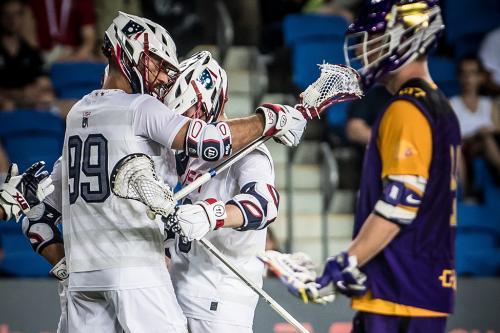 HHP - Update me in site_config > General Configuration
HHP - Update me in site_config > General Configuration
Are there benefits or pitfalls with the different league structures? Does the structure impact players differently? These were some of the questions Dr. Chris McLeod, Assistant Professor of Sport Management at the University of Florida, explored in a recently published paper.

Photo by Oded Karni
October 27, 2022
by Collin Ulmer
Most sport leagues are comprised of privately-owned teams. For example, Micky Arison is the owner of the Miami Heat, and the Heat, like other individually owned men’s basketball teams, are part of the larger National Basketball League.
Other sport structures exist, too, including athlete-owned leagues. The Premier Lacrosse League is one example.
Are there benefits or pitfalls with the different league structures? Does the structure impact players differently?
These were some of the questions Dr. Chris McLeod, Assistant Professor of Sport Management at the University of Florida, explored in a recently published paper.
He focused on the Premiere Lacrosse League, which debuted in 2018 to compete against Major League Lacrosse, the longstanding dominant force in professional lacrosse competition. McLeod found that sport leagues with lower consumer market share, such as lacrosse, volleyball, and skateboarding, had a much higher chance of success in comparison to media-dominant sports, including basketball, football, or soccer.
Further, athletes will likely create and purchase more sport leagues in newer sports, like pickleball, padel, and cornhole. The lower initial costs, relative to buying time-honored leagues and teams, make such ventures possible.
Finally, results indicate that athlete-owned leagues may motivate competitors to work harder and seek greater organizational and individual results.
In discussing the study, McLeod noted, “[society] will probably never see an athlete-owned league in association football, American football, or rugby. Athlete-owned leagues are possible in smaller team sports with accurate performance metrics and longer careers if leagues can find ways to allocate rewards and raise capital.”
The success of player-owned leagues, like the Premier Lacrosse League, opens the possibility for the creation of other leagues and the growth of sport around the world.
***
Read the full article here:
McLeod, C. M. (2022). Are Athlete-Owned Leagues a Viable Alternative for Professional Sport? Journal of Sport and Social Issues, 46(1), 51–74. https://doi.org/10.1177/0193723520973646
***
Connect with UF SPM: Facebook | Instagram | LinkedIn | Twitter
***